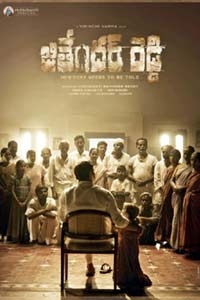
Sometimes the two easiest tasks in this world can be scoring music and cranking the camera for a film written/directed by RGV. (At times, the second one is also the least remunerative task on earth because disastrous experiments like 'Department' can fetch the cinematography post-release brickbats from someone associated with the film itself).
But, if you watch Psycho, you could conclude that writing story is another of the easiest activities on the planet. It is so very plain, barren and utterly predictable that it is not difficult to see direction under the ignoble supervision of RGV as worse than child's play. It's a kind of script that a good film student in Mumbai would not even like to take up. Enough long at 86 minutes, a decent teleserial maker would have held our interest for at least five episodes, but not Kishore Bhargav.
Mira (Nisha Kothari), a white-collar employee hailing from a middle-class family and having responsibilities to deliver towards her parents and younger brother, comes with a financial situation and a Karma-mindedness atypical of the great man's heroines. Enters the psycho, tall and well-built, wearing an amiable smile (or a menacing one, depending on whether you are watching the movie muted or unmuted), preferably wearing ironed clothes, but whose baritone is quite uncharacteristic, thanks to the dubbing. Quite unsuspecting, Mira shares a laugh over a Sardarji joke and gives away her phone number.
From time to time, the cameraman and the musician, two of RGV's most precious copy cats, make sure that the audience feels a sense of deja vu; after all, RGV's imprint is too valuable to be encumbered with some other creative expression.
The trouble is that for RGV and his school kids, dramatization begins and ends with these two - background score (which has long become monotonous), and uncanny camera angles (which are much the same whatever the genre).
Yes, the narration is quite believable and convincing (and barring the climax where the heroine gets a once-in-a-millennium opportunity, the film is true-to-life also) - but so would a carefully written special report on an acid attack victim be. If anything, it is not a bit stirring and moving even as much as a dry editorial.
RGV, around whom some members of our society have stupidly built a halo of a knowledgeable person, doesn't even know that most of them who have fallen prey to jilted lover boys have fallen so not because of police apathy or helplessness but because of the easy access to acid in the market place. The film doesn't raise this point, which is critical to stopping acid violence.
The film has some features which would make you think of it as slightly moderated version of a technically good, but artistically and aesthetically poor, teleserial on national television. First, the scenes: the conversations between the psycho and Nisha are so mundane and undramatic that they don't even have the intelligence of a drama enacted by a good University students' group. The depiction of the psycho's turbulent and dangerous self is quite unimaginative and bland.
As for Nisha's traumatic mood, she emotes as if she is a perplexed memory loss patient. Look at her immature performance in the scene where she is tied to a table and threatened by him.
The climax is not climactic enough, though it is cinematic.
Overall, Psycho is an undramatic, uncinematic and a happily RGVised film that can be avoided if you have had the imagination to picture the traumatisation of a stalking victim in your town. Your mind is much more positive than the character (needless to say, RGVised) who says that none can stop a person who has resolved to kill.
Milind Gunaji's cameo deserves no comment, like the rest of the film.
Verdict: Not a fit script to be made into a feature film for the big screen.
Rating: 1.5
Rating: 0 / 5.0
Showcase your talent to millions!!
Telugu Movie Reviews
 Devaki Nandana Vasudeva
Devaki Nandana Vasudeva
 Zebra
Zebra
 Mechanic Rocky
Mechanic Rocky
 Matka
Matka
 Kanguva
Kanguva
 Jithender Reddy
Jithender Reddy




Comments